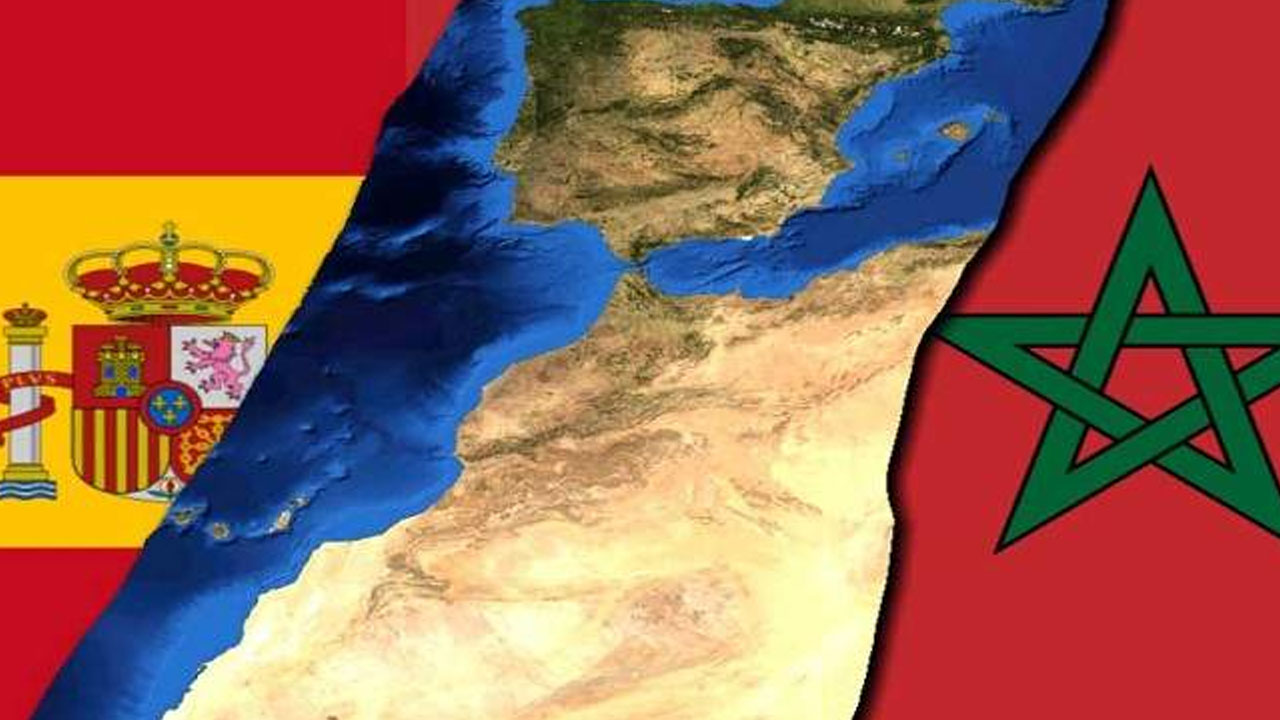Spain has recently changed its stance on the Sahara issue, with its On Foreign Minister Jose Manuel Alparís announcing last March his support of the Moroccan proposal for autonomy in the Sahara. He told reporters in Barcelona, “Spain considers the autonomy initiative presented in 2007 by Morocco to be the most serious, realistic, and credible basis for a solution of this conflict between Rabat and the Polisario Front.” Madrid had up till then maintained a neutral position on the issue of the Western Sahara.
Spanish Moroccan relations had witnessed growing tensions since the rise of the Socialists to power in Spain, especially after the Polisario Front leader Ibrahim Ghali entered Madrid for COVID-19 treatment. This prompted Rabat to escalate its rhetoric towards Madrid, in light of its direct and clear support for the Polisario Front leader. This situation underwent a significant transformation on March 19th, when the Spanish government announced that bilateral relations had entered a “new phase”, a move welcomed by Morocco but condemned by the Polisario Front. Spain’s motivations for taking this step include the following:
Controlling irregular migration and combating terrorism. Immigration to Spain through Morocco has been on the rise, prompting Spain to accuse Morocco of laxity in taking measures to curb immigration. The Spanish position indicates a desire to cooperate with Morocco to control the movement of illegal immigration, as well as combatting terrorism and organized crime.
Strengthening economic relations and investment flows. Madrid believes the Western Sahara is turning into an important economic zone. Spain has significant investments in Morocco, especially in the Gold Valley region and the fisheries sector, and the country is also Spain’s first African trading partner and its third non-EU economic partner. The Spanish economy benefits greatly from its relations with Morocco, which translates into EUR 16 billion in trade, and involves 17,000 Spanish companies, 700 of which based in Morocco. Spanish exports to Morocco grew by 29% between 2020 and 2021.
Competition with Germany. Berlin’s declaration of support for the Moroccan proposal prompted Spain to re-evaluate its position. Berlin’s declaration led to significant improvement in Moroccan-German relations, which had deteriorated, with Morocco recalling its ambassador from Berlin, because of Germany’s position on the issue. Germany became the third influential country on the international scene to strengthen diplomatic ties with Morocco recently, after the United States and Israel. Chancellor Olaf Scholz, leader of the Social Democratic Party, expressed his support for Morocco on the Sahara issue, with the aim of ending the diplomatic crisis between the two countries. This put pressure on Pedro Sanchez’s government to do the same.
The closure of Algerian gas pipeline passing through Morocco. The closure of this pipeline, which moves gas from Algeria to Spain via Morocco, on October 31st, had a negative impact on the Spanish economy. Algeria rejected a request from US Deputy Secretary of State Wendy Sherman, who visited Algeria, to discuss restarting the pipeline. The Algerian regime exploited the Russia-Ukraine crisis to pressure Spain , prompting the latter to strengthen its relations with Morocco. Algeria in turn announced, following Spain’s declaration on the Sahara issue, that it has raised gas prices for Spain for the period 2022 to 2024.
Activating the Euro-Maghreb pipeline. Madrid seeks to activate this line in the hope that this will contribute to reducing European dependence on Russian energy supplies. The large gas pipeline linking Nigeria with Morocco will secure a significant portion compensating for Russian energy resources. Spain will also become the center for liquefying natural gas destined for Western Europe. Supplies from the Nigeria-Morocco pipeline are essential for the development of these liquifying facilities in Spain. Morocco also intends to enter the global liquefied natural market, using the existing infrastructure.
Future Prospects
It can be argued that there are two possible scenarios regarding future prospects for Moroccan-Spanish relations:
The first scenario would be the normalization of relations between the two sides, especially given Spain’s desire to strengthen cooperation in the field of combating illegal migration and terrorism. This scenario is supported by the steps taken by the Spanish government to improve relations with Morocco, most notably the dismissal of Foreign Minister Arancha Gonzalez Laya from the government, last July, for allowing Polisario Front leader Ibrahim Ghali to enter Madrid for treatment with forged documents. Some Socialist politicians, such as former Prime Minister Jose Luis Rodriguez Zapatero, and former Defense Minister Jose Bono, have shown support for a solution to the Sahara issue through autonomy under Moroccan sovereignty. Morocco has reinstated its ambassador to Spain following this change of stance.
The second scenario involves a more pragmatic relationship, in view of the Spanish interest in pressuring Algeria through reconciliation with Morocco. Moreover, Spain has not explicitly recognized Moroccan sovereignty over the Sahara, and there is opposition to this idea from many Spanish political parties, associations, and churches that support the Polisario Front. The leftist Podemos Party and the conservative People’s Party attacked the government in parliament for not consulting with them before announcing the decision.
There continues to be unresolved issues between Madrid and Rabat, especially regarding the demarcation of Morocco’s southern maritime borders. The new Spanish stance can therefore be regarded as a compromise, a move away from the classic diplomatic position that this is a dispute to be resolved by the United Nations, while avoiding the official and legal recognition of Moroccan sovereignty over the Sahara, by holding back on the demarcation of the joint southern maritime border.
While the second scenario appears more likely, the two sides now have an opportunity, despite challenges, to strengthen the economic partnership and renegotiate points of contention. It is of note that there is US and European support for advancing Moroccan-Spanish relations in the context of the Ukraine war, and strengthening Russian-Algerian ties.


